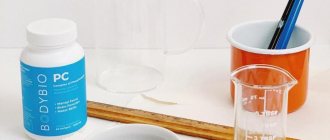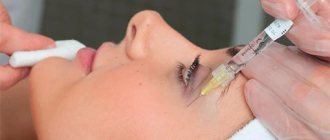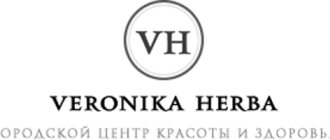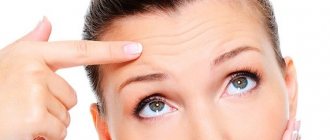Phosphatidylcholine is a phospholipid that produces the important neurotransmitter acetylcholine. It is involved in memory, movement and metabolism, and is also used to reduce the amount of accumulated fat in the liver and under the skin.
This substance is present in eggs, red meat, nuts and whole grains. It can also be used in the form of dietary supplements.
Phosphatidylcholine helps with memory disorders, reducing body fat percentage and maintaining a healthy metabolism.
Lecithin in cosmetology
The human body contains trillions of cells, and each of them requires lecithin to function properly. The epidermis is no exception. Lecithin is a phospholipid that is part of the cell membrane. The stronger the cell membrane, the longer it will live, which means the skin will age and fade more slowly.
Lecithin is used not only in medicinal but also in decorative cosmetics. It can be added as an active ingredient or as an emulsifier.
Hydrogenated lecithin is often used in modern cosmetics. It is obtained from soy protein. The component dissolves in vegetable oils and water, so it is convenient to use in the manufacture of cosmetics.
Source Naturals, Skin Eternal Cream, 56.7 g
★★★★★
RUB 1,172
More details
Phospholipid helps:
- soften and tone the skin;
- restore the natural protective function by strengthening the cell membranes of the epidermis;
- improve the functioning of the sebaceous glands;
- slow down the evaporation of moisture from the skin layers;
- improve protection against free radicals;
- slow down the aging of the epidermis;
- eliminate inflammation and irritation, heal microdamages.
Lecithin care is suitable for different skin types. Girls with dry epidermis use creams with phospholipid for deep hydration, and those with oily skin value cosmetics for regulating sebum secretion. Cream with lecithin and SPF is well absorbed, so it will not “float” in the heat, and in winter it will help get rid of flaking and protect your face from frost. Positive reviews only confirm the benefits of such cosmetics.
One of the reasons why lecithin is added to skin care products is that it improves the absorption of other active substances, especially vitamins and fat components. Lecithin in cosmetics acts as a conductor: it helps them penetrate into the deep layers of the epidermis.
Benefit for health
The benefits of phosphatidylcholine lie primarily in its work as a phospholipid, which can eliminate fat deposits and promote the functioning of a neurotransmitter associated with memory.
Supports healthy memory
An animal study published in the Journal of Nutrition examined the effects of PC on mice with dementia and low acetylcholine concentrations. The scientists found that PC supplementation improved memory and generally increased the amount of choline and acetylcholine in the brain to or above the levels of healthy control mice.
In a study from the journal Neurobiology of Aging, researchers found that PC levels were significantly lower in patients with Alzheimer's disease. This suggests that the substance may play an important role in the pathology of the disease.
Supports Healthy Metabolism
Phosphatidylserine (PS) and phasphatidylcholine are the most abundant phospholipids, which play an important role in the regulation of lipids, lipoproteins and energy metabolism in the body as a whole. Low levels of PS in tissues can affect energy metabolism and lead to the development of diseases.
Low levels of PC and PC are associated with metabolic disorders, including atherosclerosis, insulin resistance and obesity.
Helps fight non-alcoholic fatty liver disease
PC is known for its ability to break down fat and has been shown to reduce liver lipid levels in mice fed a high-fat diet. The study supports the theory that dietary PC may help treat non-alcoholic fatty liver disease. However, to confirm it, it is necessary to conduct more thorough studies with the participation of volunteers.
Helps get rid of fat deposits
Preliminary research suggests that FQ may be effective for losing fat in the chin, neck, thighs and abdomen. A study published in the journal Aesthetic Plastic Surgery showed clear improvements in all 50 patients who received phosphatidylcholine injections to reduce superficial fat deposits.
Treatment with PC also showed a decrease in the amount of fat without further return and weight gain over the next two years of follow-up.
Fights ulcerative colitis
Phosphatidylcholine may protect the colon wall and relieve symptoms associated with ulcerative colitis, an inflammatory bowel disease. The study found that ulcerative colitis reduced PC levels in patients, but supplementation of PC into the colon mucosa may alleviate inflammatory activity.
Phosphatidylcholine has other possible properties that have not yet been studied in humans. These include the ability to dissolve cholesterol stones in the bladder, reduce anxiety, relieve PMS symptoms, and fight acne and eczema.
The use of lecithin for the skin of the face and body
The component is used by many large concerns. Cosmetics manufacturers also love this phospholipid. Lecithin-based creams are made for different parts of the body: from the face to the heels.
The substance can be contained in all multi-stage care products: cleansing gel or foam, serum or cream. And if you also take lecithin dietary supplements internally, the effect will be amazing.
The component is often added to products for skin peeling and irritation. It’s a good idea to use this treatment, for example, after unsuccessful shaving of sensitive areas. Lecithin should not be neglected by those who suffer from severe dryness and dermatological problems. But before that, it is advisable to consult a specialist.
Use of hair substance
Lecithin can be seen in shampoos and conditioners, masks and hair gels, but more often in care products: serums and emulsions.
This is due to its enormous positive effect on hair. This is a natural substance that penetrates deeply into the hair and acts on it at the cellular level, providing regeneration, metabolic processes and nutrition. As a result, the hair becomes silky, manageable and healthy.
Lecithin products help restore hair structure. The substance protects and nourishes it, thereby promoting natural regeneration. The hair structure is maintained, the aging process is slowed down, and the hair is restored from the inside. As a result, the hair acquires thickness, health and shine.
The use of the substance can radically improve the appearance of severely damaged hair.
Care products based on lecithin help restore hair that lacks vitality, has dry ends and increased oiliness at the roots.
The substance normalizes the functioning of hair follicles, thereby increasing hair growth. Emulsions and balms with lecithin are useful for emergency hair restoration and are used in straightening procedures.
Homemade creams with lecithin
There is a stereotype that doing cosmetics at home is difficult and inconvenient. But this is a myth: if you follow the recipe, everything will work out. Homemade cosmetics have many advantages: it is known for sure that only high-quality ingredients are used in the composition, all oils are selected according to skin type.
Universal cream recipe
This is a base from which you can select combinations of components. To make the cream you will need:
- lecithin - 1 tsp;
- liquid - 2 tbsp. l.;
- oil - 2 tsp.
By liquid we mean pure water, hydrosols based on medicinal plants, herbal infusions, etc. Any oil can be used: from ordinary olive oil to more exotic options. Girls with oily skin should choose non-comedogenic oils, and those with dry epidermis should choose nourishing varieties.
Before you start making the cream, be sure to wash your hands and sterilize the containers in which the cream will be mixed and stored. This will extend its shelf life and prevent the growth of bacteria.
The preparation steps are as follows:
- Take the liquid (the so-called aqueous phase) and add lecithin. It is available in liquid form in bottles or capsules.
- Mix the liquid and lecithin thoroughly.
- Add oil.
- Beat with a mixer. A good option is to pour the mixture into a shaker and shake well. Stir for 5-7 minutes. The consistency should be thick and creamy.
Transfer the finished cream into a sterilized jar. You need to store natural homemade cosmetics in the refrigerator, otherwise the product will quickly deteriorate.
Below are 3 cream options for different skin types. They are made according to the recipe above, so only the components are listed.
Nature Republic, Aqua, Super Aqua Max, Clear Moisturizer, 2.7 fl. oz. (80 ml)
★★★★★
848 rub.
More details
For dry
Ingredients:
- Lecithin - 1 tsp.
- Rose water - 2 tbsp. l.
- Jojoba oil - 2 tsp.
- Geranium oil - 2 drops.
Rose water helps moisturize dry skin, jojoba oil has excellent moisturizing properties, and geranium softens and tones the epidermis.
For sensitive
Ingredients:
- Lecithin - 1 tsp.
- Geranium hydrolate - 2 tbsp. l.
- Avocado oil - 2 tsp.
- Lavender oil - 2 drops.
Avocado is valued for its ability to soften and nourish the skin, geranium moisturizes and relieves irritation, and lavender soothes the epidermis.
Pacifica, Kale Luxe Oil-Free Multi Cream, 1.7 fl oz (50 ml)
★★★★★
RUB 1,275
More details
For fatty
Ingredients:
- Lecithin - 1 tsp.
- Rose water - 2 tsp.
- Almond oil - 2 tsp.
- Tea tree oil - 2 drops.
Tea tree is actively used in cosmetics for problem skin due to its antibacterial properties. Almond oil nourishes and moisturizes well without clogging pores. And rose water relieves inflammation and soothes the skin.
How to use
Phosphatidylcholine is available in several forms, which can be used in different ways:
- Orally. Phosphatidylcholine supplements are sold in capsule and tablet form. There is no standard recommended dosage, but studies have shown that taking 30 grams of the substance per day for 6 weeks or no more than 6 grams for two years is quite safe. Most often, doctors advise taking 840 mg no more than twice a day.
- Injections. Only a specialist should administer subcutaneous injections of phosphatidylcholine. Doses should be spread over 2-4 weeks.
- Externally. FQ is applied to the skin to relieve inflammation, fight acne and other skin disorders. It is available in serum, ointment and oil form. Please read the instructions carefully before use.
Benefits of ginseng: less stress, better brain function
The main causes of dull hair:
- lack of nutrients (proteins, microelements) that form the structure of the hair. This may be caused by an unhealthy diet or monotonous diet [1];
- diseases of the endocrine system [1];
- diseases of the gastrointestinal tract [1];
- dysbacteriosis and other diseases (anemia, hepatitis, worms) [1];
- improper hair care [2];
- poor ecology in the place of residence [2];
- temperature changes to which the head is exposed [2];
- stress due to frequent cosmetic procedures (coloring, styling, curling) [2];
- hormonal disorders, which also lead to the appearance of seborrheic disorders and the formation of dandruff [6]
The presence of these factors leads to the appearance of split ends, thinning of the hair structure, as well as loss of shine, since the hair scales, which when healthy reflect light and create a glossy effect, begin to flake off and cease to protect the hair from adverse effects [2]. If it is impossible to eliminate a negative factor (for example, move from an area with polluted air or cure a chronic disease), you need to use medicinal products.
Lecithin
Recently, among other dietary supplements, lecithin supplements have risen in popularity. These products have many biological effects and are indispensable in the field of beauty and health. Professional bodybuilders also leave positive reviews about their use.
BENEFITS AND HARMS OF LECITHIN
Chemically, lecithin is phosphatidylcholine. Contains a standard set of fatty acids - saturated and unsaturated (the same PUFAs - oleic and linolenic acids). Phosphatidylcholine is the main phospholipid in our body (up to 60% in various organs), and it is lipids that make up the structure of cell membranes. Therefore, without phosphatidylcholine, the existence of any cell is impossible. It increases the fluidity, susceptibility, and permeability of the membrane. Its concentration determines how well the cell performs all its functions.
Most phosphatidylcholine is found in the brain and liver.
Benefit
The biological effects of the compound are very diverse, since it is present in all cells, organs, and tissues.
Metabolism
Lecithin is worth buying for anyone who seriously cares about their figure and health. It has a lipotropic effect and prevents the development of obesity; accelerates fat metabolism in the liver, protecting the latter from hepatosis or steatosis. This compound is considered a cholesterol antagonist: it emulsifies harmful triglycerides and cholesterol in the form of a solution in the blood and prevents their deposition in the form of plaques on the vascular wall.
The use of appropriate supplements increases the concentration of beneficial lipoproteins in the vascular bed. Lipoproteins actively transport cholesterol molecules to the liver, where they are synthesized into bile acids.
Lecithin Solgar
Nervous system
Lecithin is included in the structure of not only neuronal membranes. It is considered the main component of myelin, which acts as a sheath for nerve bundles. Without myelin, the transmission of nerve impulses and the implementation of excitability are impossible. It is from lecithin that acetylcholine is synthesized - the most important neurotransmitter of the human nervous system. Its deficiency leads to:
- nervous exhaustion,
- impairment of cognitive functions,
- fatigue,
- irritability,
- increased fatigue.
lecithin
Liver and pancreas
Phosphatidylcholine molecules are embedded directly into damaged hepatocyte membranes, accelerating the regeneration of liver tissue. In addition, the compound normalizes liver metabolism, increasing its capabilities for detoxification and excretion, and prevents the formation of gallstones.
Lecithin is also recommended for diabetics: it reduces the need for insulin by normalizing blood glucose levels and increasing the sensitivity of cell membranes to insulin molecules.
VPLab Lecithin
Leather
Phosphatidylcholine accelerates the restoration of skin cells, their metabolic and barrier functions, making the skin more elastic and healthy. The volume of skin rashes when consuming lecithin is reduced due to active support of the detoxification function of the liver and a decrease in the concentration of toxins in the blood.
Lecithin helps to absorb fat-soluble vitamins (A, E, D, K), which are essential for nutrition and regeneration of the skin.
Harm
Most consumers perceive soy lecithins as a harmful GMO product, since the majority of soy is grown using genetic engineering (the consumer is especially worried if the dietary supplement has a low price). However, independent laboratory studies have confirmed the same effects on the human body of different types of compounds, regardless of their origin. In addition, during production, soybean oil undergoes high processing and purification.
Possible harm lies in intolerance to individual components of the product. According to the instructions, the drug is not recommended during lactation and pregnancy. It is completely safe for men, since during a multi-stage processing process all phytoestrogens are removed or are present in minute quantities.
Composition and properties
Phosphatidylcholines (as lecithins are most often called by chemists) are chemically similar substances from the group of phospholipids (phosphoglycerides), which are important for cellular structure and metabolism. They consist of phosphoric acid, cholines, glycerol esters and two fatty acids, and the chain length, position, and degree of unsaturation of these fatty acids vary. These changes result in different lecithins with different biological functions.
Pure lecithin has a color close to white, but darkens in air. Commercial products that contain the maximum amount of lecithin typically range in color from brown to light yellow, and their consistency ranges from paste to liquid. Also, the name “lecithin” is used for a mixture of phosphoglycerides containing, in addition to the main ingredient, cephalin (phosphatidylethanolamine) and phosphatidylinositol. Commercial lecithin, most of which is made from soybean oil, contains mostly this mixture plus about 35% neutral oil.











